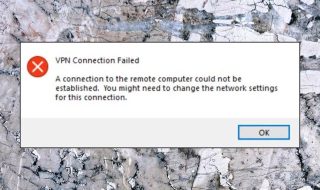
Regardless of whether you choose to call it furloughed, laid off, or unemployed, nearly 20 million workers in the US have been left worse off since the beginning of the COVID-19 pandemic. All around the world, the situation is the same. Workers who have been able to work at home safely have embraced remote employment. Those performed essential tasks that could not be assigned remotely have carried on the work with additional safety protocols. Yet, professionals who didn’t fit in any of those categories have been left with no other option than being laid off.
As a result, many unemployed professionals have been considering a change of pace. If there is no job opening suitable for your skills during the pandemic, why not create it yourself by starting your own business? After all, what else should you be doing when you’ve got plenty of time at hand? The pandemic provides entrepreneurs with an unmissable opportunity to grow a business. However, time is not the only factor in success. If you’ve been following the different productivity updates on how to work from home – from what to wear to how to release back tensions – and still finding it hard to make every day counts, here are 7 reasons why your home-based venture may be unproductive.
#1. They don’t have the right equipment

Why does an entrepreneur need to launch their home-based venture? A business idea. Relevant skills. Time to make it work. All these are suitable answers, but they are only showing one side of the story. If you’re going to work from home and produce an income-generating outcome, you need equipment that can bridge the gap between you and your market. The old laptop that still runs on a years-old operating system, for instance, is costing you precious time and effort. Remote workers, whether they are employed by a company or freelancing, need suitable equipment. Using an old device could put you at risk of cyber threats and viruses, as security systems are likely to be insufficient. Additionally, if you’re going to create any form of content for your venture, you need updated software solutions that can do the job. As a new entrepreneur, you must invest in your work equipment. This would include the purchase of the following elements:
- A laptop or personal computer that is adapted to your needs;
- Anti-virus software;
- Billing software;
- CRM system for your customers’ data;
- Relevant word processing, spreadsheet, and presentation solutions.
#2. They produce too much data

We live in a world of data. However, when you start relying on your personal devices for everyday work, you will soon face a storage issue. Apple users are the first to complain about their iCloud storage full, wondering why their iPhone and iPad devices can’t cache properly. Why does your iCloud inevitably fill up when you start a new venture? You’ve saved all work documents on your laptop, so you don’t understand why your iPhone storage space is running out. The answer is simple: Apple products sync almost everything to iCloud, including safari data, notes, calendars, and contacts. The 5GB free you get with an iCloud account is not sufficient. Freeing up storage and upgrading to the next storage tier can let you perform all tasks swiftly.
#3. They don’t set priorities

Everyone wants their home-based ventures to look as professional as possible. However, when you’re working on your own, you need to set clear priorities. Time is limited, and you can’t afford to waste on processes that don’t make money. The bottom line: Not every activity should be prioritized equally. Income-generating activities should be at the top of your to-do list, while other considerations can be addressed later.
#4. Their flexible schedule backfires

The advantage of working from home is that you can’t choose when to work. Flexible schedules mean you are free to start and stop whenever you want. Flexibility, however, comes at a high cost. If you’re used to working on a strict schedule, the freedom to choose your working hours could affect your productivity and motivation. When you drop the “due-date” factor, you could find yourself relaxing your efforts. A flexible schedule can introduce overwhelming freedom that makes you forget that you have a full-time job. Freedom, as it happens, needs to be organized. You need to create a strict work schedule that fits your needs and stick to it. It doesn’t matter when you work as long as you know when to work and when not to.
#5. They’re lost in the home office ideal

Who hasn’t browsed for online inspiration to decorate their home offices? A little DIY can turn a spare bedroom into a cozy and productive office. However, you need to be realistic about your efforts. Your home office should not become a full-time home improvement project. Keep things sensible by focusing on what matters: An inspiring place to work that doesn’t break the bank. Your home office doesn’t need to be Instagram-worthy.
#6. They use one phone for everything

As a solo entrepreneur, being easy to contact is a priority. However, that doesn’t mean you should publish your personal contact details on your business website. Setting boundaries allow you to maintain a healthy work/life balance. Nobody wants to receive phone calls in the middle of the night from a potential client. Using a service that can redirect business calls to your business during your working hours can be a game-changer. Your professional number protects your privacy, and also ensures that no call gets diverted outside working hours. Similarly, you can also use a virtual business address.
#7. They don’t have a business vision

When you’re launching your business, it may be tempting to accept every gig for the sake of making money. However, if you are serious about building a professional presence, you need to create a clear business vision. Your vision defines your business values and your mission. It will prevent the headless chicken syndrome, where you run in multiple directions at the same time.
Launching a business venture at home has become a popular solution for unemployed professionals during the pandemic. However, if you’re going to give yourself a chance of success, you need to be clear about establishing a productive work balance. Simple choices can create healthy and manageable boundaries in your work life and allow you to dedicate your time to activities that drive income.




